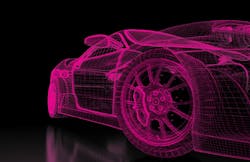This Week's Top Advanced Vehicle Design News
May 19, 2021—A white paper published in 2015 by KPMG Insurance included a survey of insurance executives and their views toward autonomous vehicles.
The survey found executives to be skeptical for near-term change. A plurality said that significant change will take place more than 11 years down the line to core functions, including underwriting and claims.
The swiftly growing startup culture around vehicle autonomy, as well as technology advances, have brought the topic to the fore, and that decade-long window for significant change could prove to be true as insurers now look just five years into the future.
To gauge the state of play these days, a webinar from Partners for Automated Vehicle Education spoke to insurance industry experts about their views for a new kind of driver.
Safety as Top Concern
In a broad sense, insurers are looking at autonomous vehicle technology much like other stakeholders. They see potential to drastically reduce crashes and fatalities due to human error.
“We see this combination of continuing focus on safety and reducing fatalities but also improving accessibility and equity that come along with AVs," said Max Libman, underwriting consultant in sharing economy for Liberty Mutual Insurance.
A change in the frequency and severity of crashes has the potential to disrupt the claims processes that are currently based on human driver cases.
To read more and see why the tech needs to be proven, check out the full story at ADAPT.
